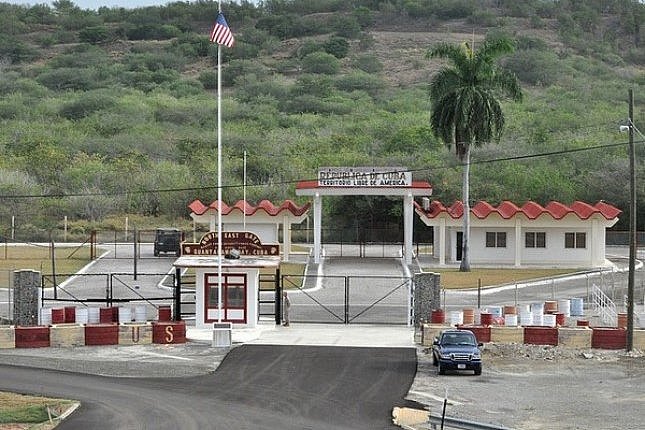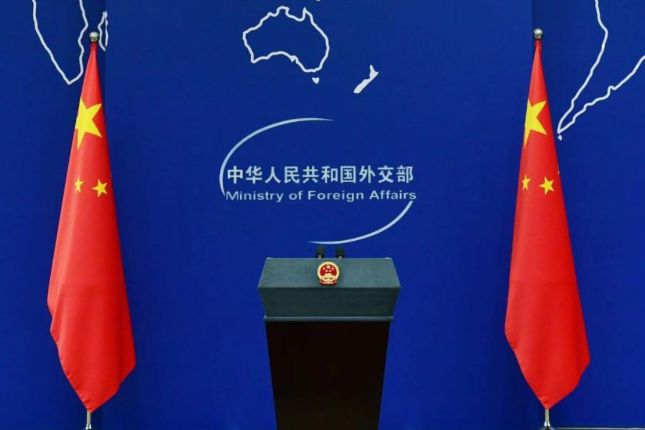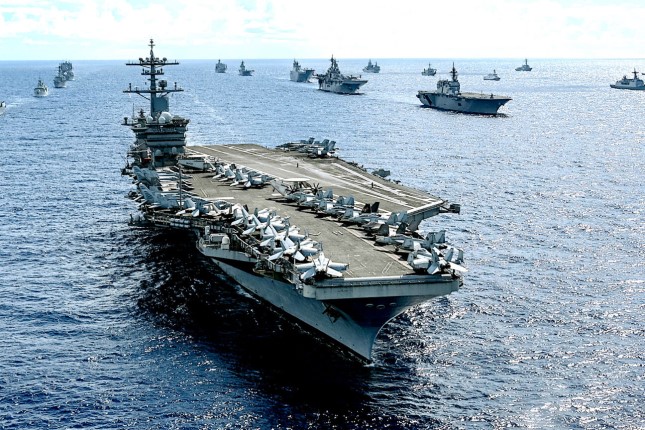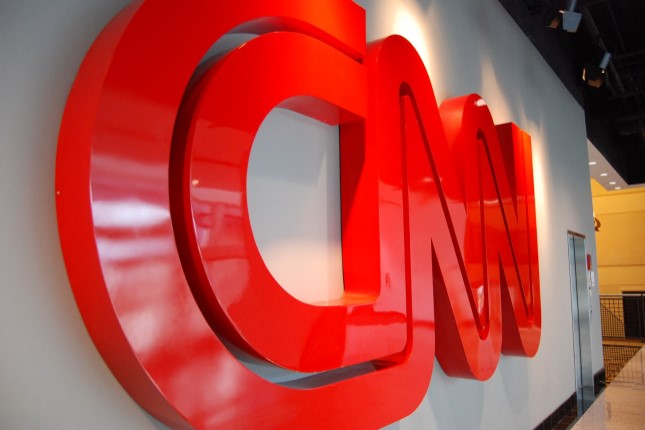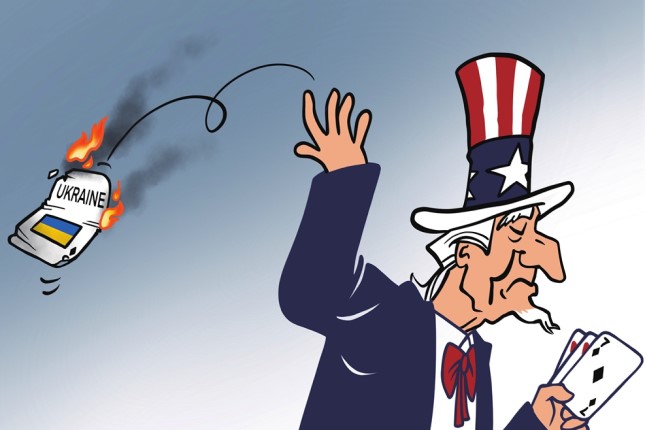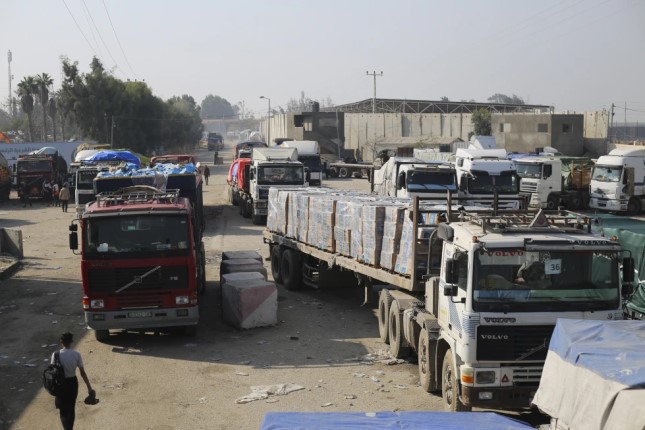Like Rorschach tests, they can leave observers scratching their heads. As an example, my top 10 movies are probably, in no particular order, Gladiator, Tombstone, Braveheart, LA Confidential, Valley Girl, Lost in Translation, Galaxy Quest, Trading Places, Love Actually, and maybe Titanic.
I’m not sure what that list says about me, particularly the inclusion of Valley Girl, but I’m sure some psychiatrist somewhere could say there’s something to be taken from it. The one thing I can observe from my list is that most of my movies have a good guy vs. bad guy conflict, which is, of course, not a surprise coming from a guy who writes a lot about politics.
Occasionally, though, in movies, as in life, who is the good guy and who is the bad guy isn’t quite clear. For example, there is A Few Good Men, set in Guantanamo Bay, near the end of the Cold War. The bad guy in the movie is Jack Nicholson’s Colonel Jessup, and the good guy is Tom Cruise’s Lieutenant Kaffee. For those unfamiliar with the 30-year-old movie, basically a Marine dies in his bed after being abused by his fellow Marines under indirect orders from Colonel Jessup. Two Marines are charged with his murder and the courtroom drama plays out demonstrating that Colonel Jessup was actually the guilty party.
For those unfamiliar with Guantanamo other than as a political football, it’s an American base on the southeastern end of Cuba. It’s been a permanent American base since the end of the Spanish American war in 1903. It’s about 50 square miles of concrete and mostly brown grass sitting on two sides of a bay and surrounded by a ring of mountains. Christopher Columbus actually spent the night in that area! I grew up there, and it was a wonderful place to be a teenager, with beaches, a golf course, year-round baseball, outdoor movie theaters, and spectacular scuba diving, all under the glow of perfect weather almost every day.
Of course, the resort-like experience I had as a kid was ancillary to the actual function of the base itself. The base was surrounded by a fence separating it from Cuba proper. The fence was buttressed by a zone of land mines, with ubiquitous red and yellow triangles warning of the danger of passing a certain point. When I lived there, at the same time as the period covered by A Few Good Men, America was in the midst of the Cold War, with Cuba essentially being the front lines, along with occasional shots being fired across the no man’s land and the fences peppered with watchtowers on both sides.
While Guantanamo wasn’t West Berlin, it was always theoretically under threat and, as such, the Marines prepared to defend it if necessary. A Few Good Men deals with Marines training to defend the base, and one of the movie’s Marines was the late PFC Santiago. Apparently, PFC Santiago was a subpar Marine whom the Colonel felt needed some encouragement from his fellow soldiers to become a better Marine. In this case, that encouragement involved what they call a “code red,” which is essentially a blanket party, a form of extrajudicial punishment meted out by fellow soldiers / Marines etc. when one of their number negatively affects the group.
Usually, such punishment is not fatal, but in the case of PFC Santiago, it was. Two privates were charged for the murder, but Tom Cruise’s Lt. Kaffee is called upon to defend them and eventually places blame on the shoulders of Jack Nicholson’s Colonel Jessup.
What makes this movie so remarkable is the speech that Colonel Jessup gives while on the witness stand: Son, we live in a world that has walls, and those walls have to be guarded by men with guns. Who’s gonna do it? You? You, Lieutenant Weinberg? I have a greater responsibility than you can possibly fathom. You weep for Santiago, and you curse the Marines. You have that luxury. You have the luxury of not knowing what I know -- that Santiago’s death, while tragic, probably saved lives; and my existence, while grotesque and incomprehensible to you, saves lives. You don’t want the truth because deep down in places you don’t talk about at parties, you want me on that wall -- you need me on that wall. We use words like “honor,” “code,” “loyalty.” We use these words as the backbone of a life spent defending something. You use them as a punch line. I have neither the time nor the inclination to explain myself to a man who rises and sleeps under the blanket of the very freedom that I provide and then questions the manner in which I provide it. I would rather that you just said “thank you” and went on your way. Otherwise, I suggest you pick up a weapon and stand the post. Either way, I don’t give a damn what you think you’re entitled to!”
One can’t help but see the seething rage coming from the despicable Jessup. You can’t help but feel the disdain he had for Santiago and Cruise’s Kaffee. He’s a dinosaur from a forgotten age. Aaron Sorkin wrote it, Rob Reiner directed it…and Jack Nicholson nailed it.
Now, most certainly, Jessup is a son of a bitch for throwing those two young Marines under the bus, but on the bigger picture, he’s 100% right. While Santiago’s death was a tragedy, it probably would have saved lives. America needs warriors on walls, and America needs men who are willing and able to pick up guns and to fight and kill to protect the nation. Often, that is a dirty, messy business, including the training that goes into making these fights successful.
When you reread that speech, it appears that Jessup could be talking to every snowflake, every Democrat, every Antifa coward, and every BLM mark in America circa 2023! In the movie, of course, he’s not interested in what Kaffee or anyone else thinks of him. He’s not interested in getting invited to their cocktail parties. He doesn’t care that their noses are turned up at him. He’s interested in one thing: protecting the country. Sound familiar?
Donald Trump can be a son of a bitch. But unlike almost every other politician in America, he understands that the country is stricken with a cancer of wokeness and is paralyzed by a bloated bureaucracy staffed by self-important and avaricious apparatchiks.
And how did he come to understand this? He lived it. Like Jessup, Trump was responsible for actually doing things, building things, and getting things accomplished. He didn’t have the luxury of pontificating and making idle promises about fixing things. What’s more, he cut his teeth in the rough and tumble world of New York real estate, one inhabited by pernicious unions, predatory mafia, and political kingpins wielding confiscatory regulations—yet somehow he turned his father’s millions into a multibillion empire.
Donald Trump is far from perfect, particularly as it relates to personnel, but at a moment in time when half the politicians in the country want to destroy the Republic and the other half promise to fix it, only to punt when they get the opportunity—i.e. ending Obamacare, building a wall, cutting spending, etc.—the country needs a leader willing and enthusiastic about tearing asunder the Swamp that is destroying America.
The country needs a revolution to stop the collapse into tyranny, and it would be far better to have someone from the inside take a wrecking ball to the fascist state the Uniparty has built than from the outside. The first will result in lots of hurt feelings and lighter pocketbooks on the part of thousands of functionaries while the second will turn the country into a war zone. I’d prefer lots of unemployed apparatchiks to American cities looking like Beirut.
Trump, like Jessup, may be a grotesque figure to many, but there are times when that which makes one grotesque to the people in charge is exactly what is necessary to protect a nation. This is one of those times.
Source: American Thinker.
